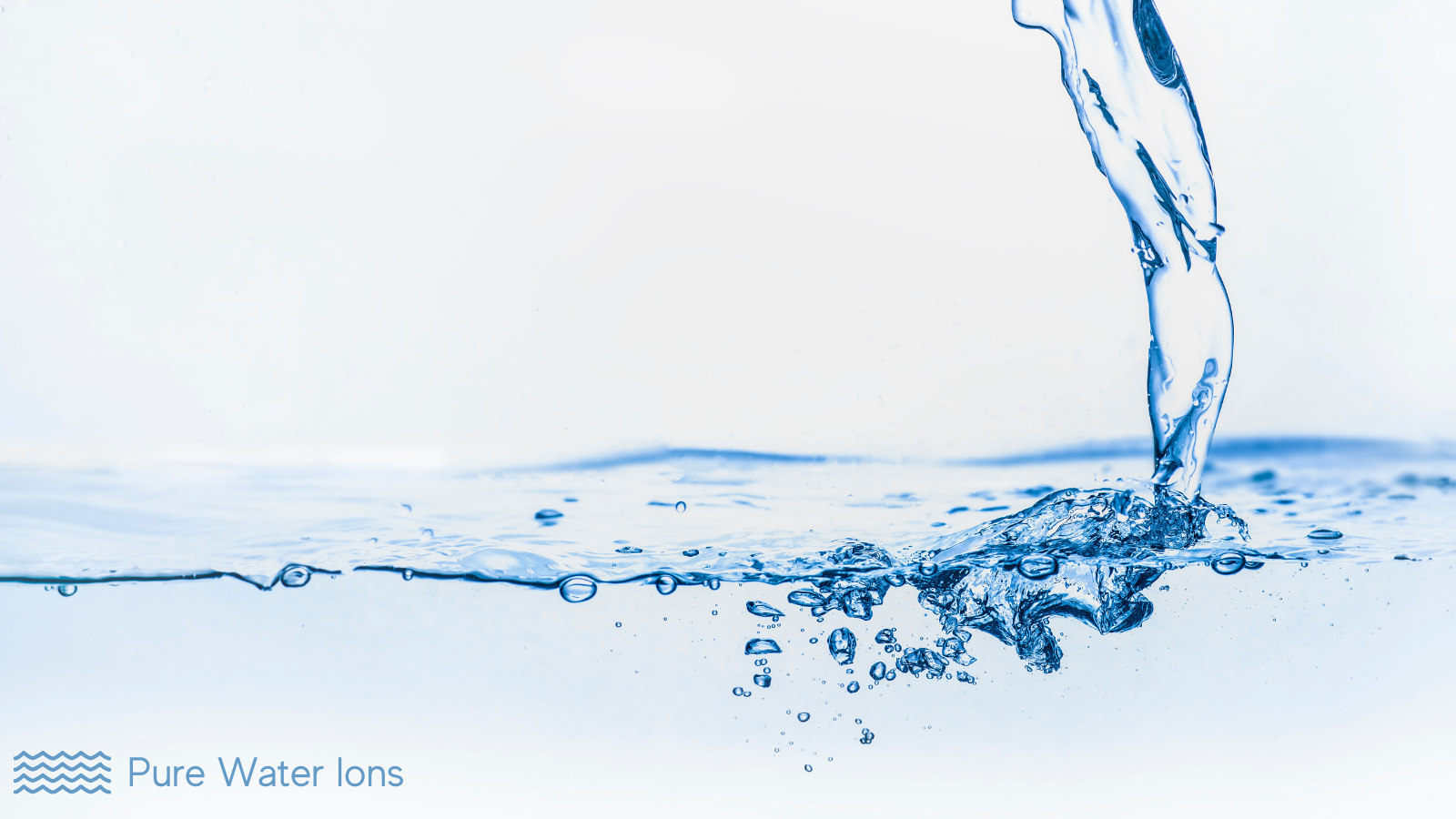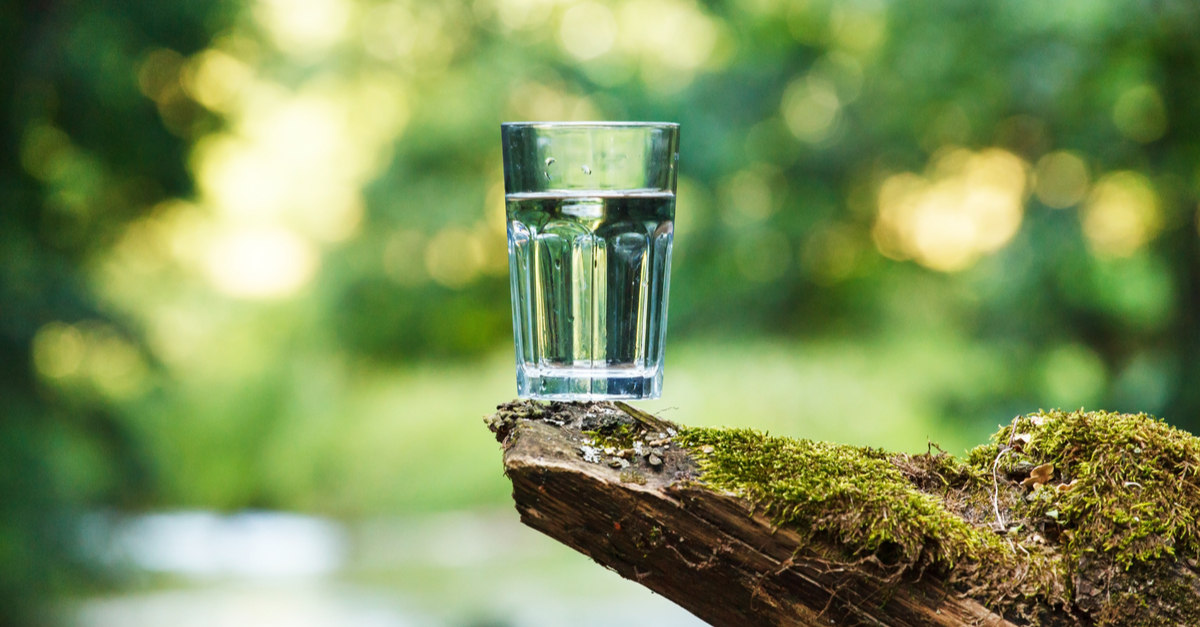
Is alkaline water good in coffee? Yes, alkaline water is great for coffee – it makes it taste better! Alkaline water extracts more flavor from coffee beans and makes a much better-tasting cup of coffee. For the best tasting coffee use alkaline water with a pH of up to 8.5. The science is there to prove it.
IS ALKALINE WATER GOOD FOR COFFEE?
Yes, alkaline water is great for making coffee. If you like coffee, you’ll love alkaline water. Like Bonnie and Clyde, when you put the two together they form a potent couple.

Alkaline water intensifies the aroma and flavor of coffee. Its alkaline properties perfectly complement the natural acidity of coffee.
Coffee is an acidic compound and the addition of alkaline water balances the acidity to enhance the taste and bring the subtle flavors to the fore.
IMPROVES TASTE
Alkaline water increases the flavor of coffee. Alkaline water extracts more flavor from the coffee beans compared to regular water and creates a more fragrant beverage.
And the science is there to prove it. A study by the University of New South Wales found that using alkaline water improved the flavor extracted from coffee beans.
They concluded that water with a pH of 7.0-8.5 resulted in the most flavor extraction and the best tasting cup of coffee. You can make alkaline water at home using an alkaline water machine.
HOW DOES ALKALINE WATER AFFECT YOUR COFFEE?
Alkaline water improves the taste, enhances the aroma, and neutralizes the natural acidity of coffee. It is a great choice of water for making coffee – and if you haven’t tried it yet, you should give it a go.

For the best results, choose an alkaline water with a pH of between 7 and 8.5. The pH scale runs from 0 to 14, and anything above 7 is alkaline.
Using alkaline water to brew your coffee takes the edge off its strong acidity levels and allows you better appreciate the complex flavors and aromas of the coffee bean. Think of it like adding a little water to whiskey.
To truly appreciate the aroma of a high-end aged whiskey you need to add a little water to ‘loosen’ the flavors. Alkaline water acts as the perfect counterbalance to the sharp acidity of a regular coffee.
It’s a real treat for your taste buds. Check out our full guide to the Benefits of Alkaline Water – over here.
WHAT ACIDS ARE IN COFFEE?
Coffee is a naturally acidic drink. It has a pH of 4.7-5.0 depending on the beans and brewing technique used. Anything below 7 on the pH scale is an acidic compound.

Coffee contains a wide range of acids, but the main players are chlorogenic, citric, malic, quinic, phosphoric, linoleic, and acetic acid. Alkaline water helps ‘balance out’ this acidity.
CHLOROGENIC ACID
Chlorogenic acid is the most prominent acid found in coffee. It’s also what gives coffee some of its best flavors. It is found in higher concentrations in light roast coffee. It is a type of phenolic acid and may play a role in glucose regulation.
CITRIC ACID
This is another acid that is present in high quantities in coffee. It adds a pleasant fruity flavor to the coffee – an aroma that is favored by many. It is highly soluble and readily passes from the bean to water during the brewing process.
MALIC ACID
Malic acid imparts a fruity flavor to the coffee similar to apples and plums. It is depleted during the roasting process – so the darker the roast the lower the malic acid content.
QUINIC ACID
Quinic acid is formed when chlorogenic acid is broken down during the roasting process. It is most noticeable in brewed coffee that has been left sitting on the heater too long and imparts a sour unpleasant taste.
PHOSPHORIC ACID
Phosphoric acid makes up less than 1% of a cup of coffee. However, it is one of the most potent acids found in coffee. And, it has no taste. It adds nothing to the flavor. It is believed phosphoric acid originates from the hydrolysis of phytic acid in the soil.
LINOLEIC ACID
Linoleic acid is a fatty acid. It is found in coffee in very low concentrations. The levels of linoleic acid in coffee are affected by the soil type and altitude at which the bean is grown. Linoleic acid is part of the omega-6 fatty acid family and is used to boost heart and blood health.
ACETIC ACID
Acetic acid is best known for the sharp bitter taste it gives to vinegar. It is found in coffee in low doses and gives it a sharp refreshing flavor. If the level of acetic acid is too high in a coffee it suffers an unpleasant vinegary taste.
READ NEXT
• Top Under Sink Reverse Osmosis Water Filters
• Counter Top Reverse Osmosis Filters
• Tips For Mastering the Art of Water Cooler Chat
• Difference Between Alkaline & Filtered Water

COFFEE & ALKALINE WATER FAQ
Does Alkaline Water Make Coffee Taste Better?
Yes, alkaline water makes coffee taste better. Alkaline water extracts more flavor from the coffee bean compared to regular water. This results in a better-tasting cup of coffee.
Does Using Alkaline Water Make Coffee Less Acidic?
Yes, using alkaline water instead of regular water makes your cup of coffee less acidic. Coffee is naturally acidic with a pH of 4.7-5.0. When you add alkaline water to your coffee it increases its pH and brings it closer to the neutral value of 7.
Can You Make Coffee With Alkaline Water?
Yes, you can make coffee with alkaline water. Making coffee with alkaline water is a great idea. It will boost the flavor of your brew and help neutralize its natural acidity. We recommend it.
What Does Coffee With Alkaline Water Taste Like?
It tastes great. Studies have shown that coffee made using alkaline water has more flavor. Alkaline water increases the amount of flavor and aroma that is extracted from the coffee bean.
What’s The Best Water pH For Coffee?
The best water pH for coffee is 7.0-8.5. According to a study performed by the University of New South Wales in Australia, using water with a pH of 7.0-8.5 extracts the best flavor from coffee beans.
RELATED
CHECK OUT
• Can Water Be Too Pure For Drinking?
• Ionized Water vs Deionized Water
• Water Softener vs. Water Filter?
• Pros & Cons of Reverse Osmosis Water
• Are There Minerals in Tap Water?
• Pros & Cons of an Alkaline Water Pitcher
